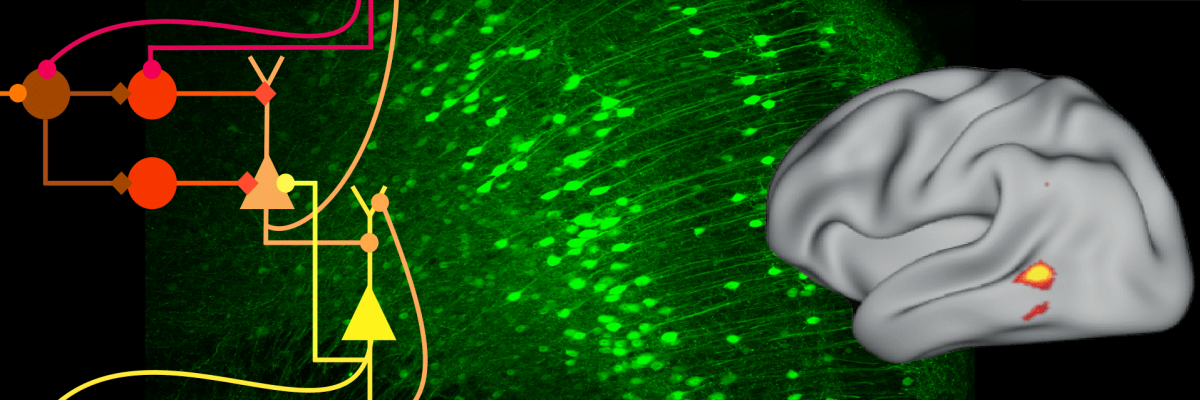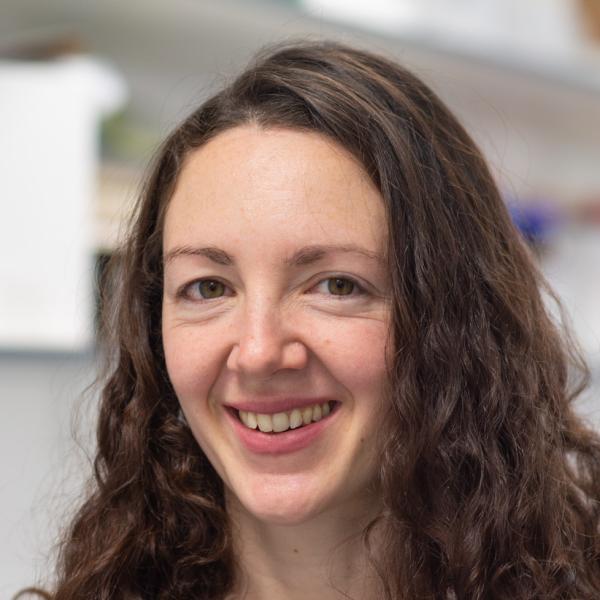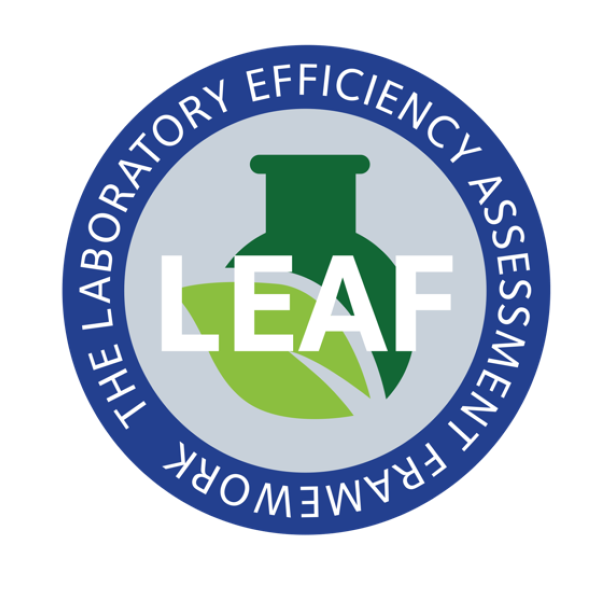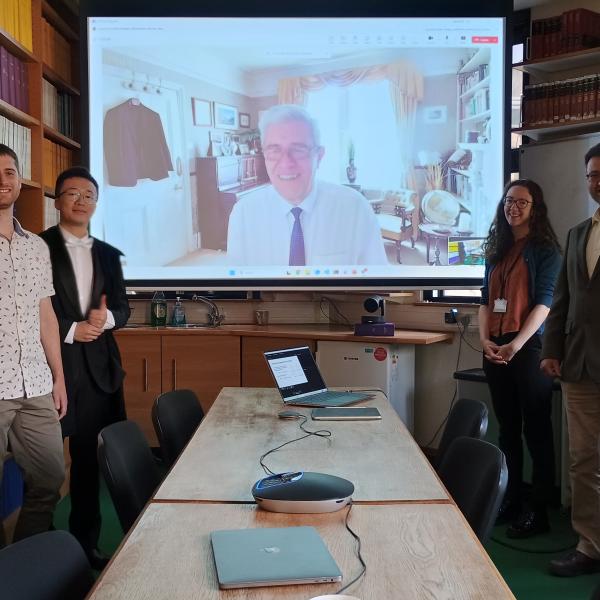Barron Group
Our group investigates how cells and circuits in the brain work together to perform computations that support memory. Using a wide range of technical approaches, we investigate how these computations are used to guide adaptive behaviour, but also how perturbations to these computations may explain core symptoms reported in people with psychiatric disorders.
Throughout our lifetime we continually learn new information that we can later recall to guide adaptive behaviour. Our lab studies the specialised cell and circuit mechanisms in the brain that support this process. We investigate how memories are stored to allow precise recall; how we form links between memories to draw inferences; and the role of sleep in modulating memories over time.
We use a cross-species approach to bridge data across different scales. This involves designing tasks that assess equivalent behaviours in humans and animal models. We then leverage a diverse set of technologies to record and manipulate neuronal activity. For example, to measure precise cell and circuit mechanisms that cannot be directly measured in the living human brain we use multiunit electrophysiology, calcium imaging and optogenetic manipulations. To record and manipulate activity in the living human brain we use neuroimaging and brain stimulation. We then integrate measurements across different scales by transforming data into a common statistical framework where we can apply machine learning methods to define neural codes and computations.
Our cross-species approach provides insight into the physiological mechanisms that underpin memory in the context of adaptive behaviour. We can then leverage our approach to assess how disturbances to these mechanisms might explain core symptoms reported in neuropsychiatric disorders. Overall, our research is designed to make fundamental discoveries that can be used to inform clinical translation.
- Defining how hippocampal computations support learning and memory
- Establishing how hippocampal activity supports flexible behaviour
- Characterising the role of inhibitory interneurons in separating and integrating memories
- Defining hippocampal computations during offline periods of rest and sleep
- Modulating neuronal computations to introduce perturbations in memory
- Relating pathophysiology of memory circuits to core symptoms reported in psychiatric disease
- Electrophysiology (multiunit)
- Calcium imaging
- Optogenetic manipulations
- Magnetic Resonance Spectroscopy (MRS)
- Functional Magnetic Resonance Imaging (fMRI)
- Non-invasive brain stimulation
- Behavioural quantification
We are committed to fostering an inclusive work environment that celebrates diversity and promotes equal opportunity within our group and the wider MRC BNDU.
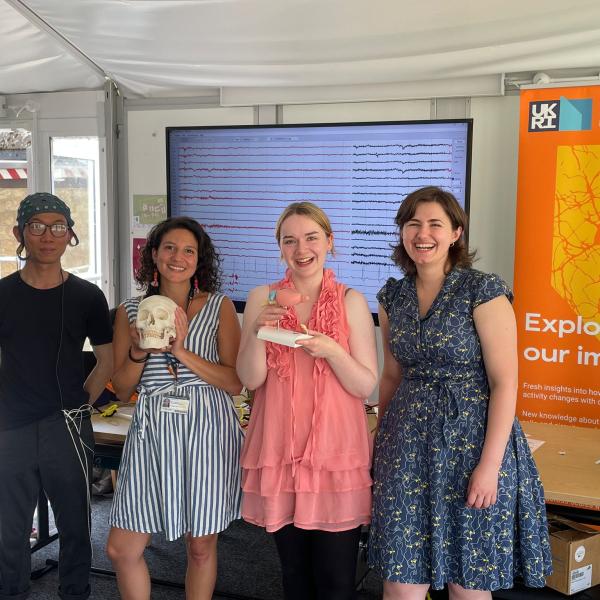
The enthusiastic BNDU team of scientists. (L-R) Shenghong, Chiara, Rosie and Ioana.
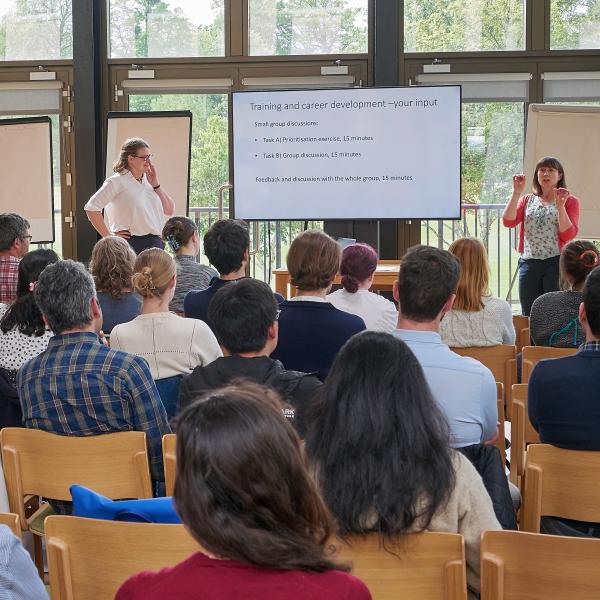
Mary Muers (far right) moderates an interactive session about training and career development opportunities.
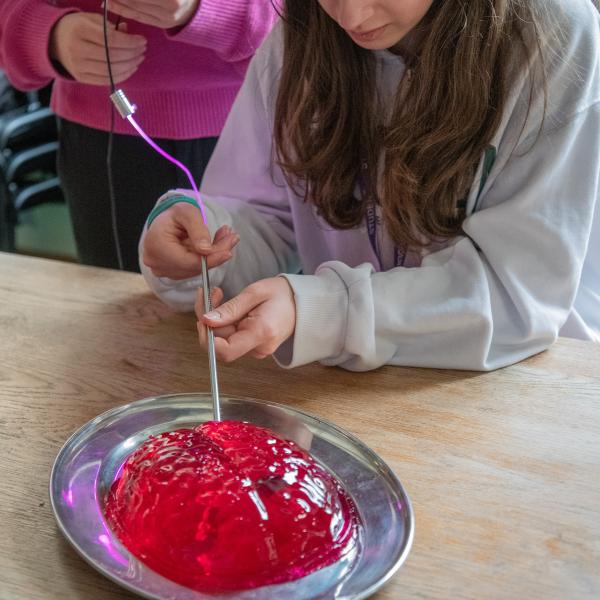
A visiting school pupil tries their hand at implanting a dummy stimulation electrode in a jelly brain!
Like other Groups at the MRC BNDU, we are committed to best practice in open research. We have created and curated a range of primary data, metadata and related resources that can be readily downloaded by external users from the MRC BNDU's Data Sharing Platform. We highlight below just a few examples of the datasets and other resources we have shared for the benefit of our stakeholders.


